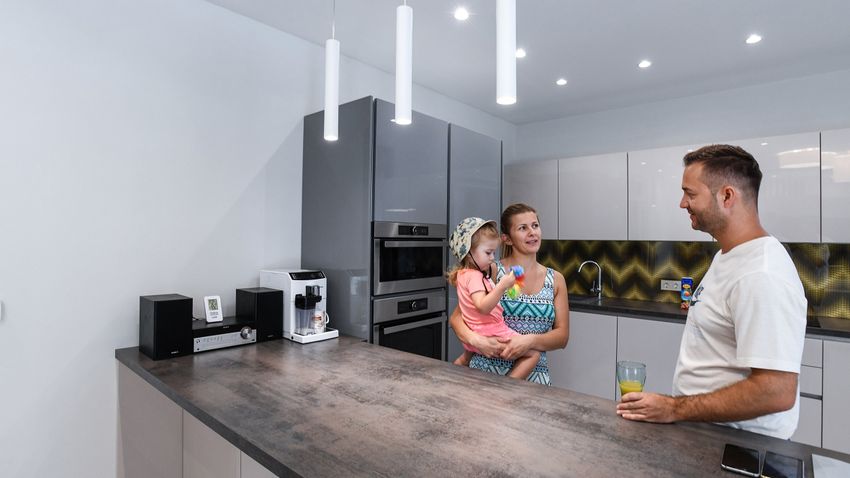In recent years, the government has taken a number of measures to encourage housing construction from both the demand and supply side. The cabinet's latest convergence program provides a summary of these. The document recalls that, among other things, a decision was made in December 2015 on the temporary reduction of the VAT rate on home sales to five percent, the increase of the family home building discount (csok) and the introduction of tax refund support, reads the Magyar Nemzet article.
Beginning in 2021, Hungary's largest home-building program to date will also be available to families, which, in addition to a further temporary reduction in housing VAT, also includes an expansion of social security: the support can now be used to create multi-generational homes, and renovation support and discounted renovation loans can also be applied for. Those who buy their home with a mortgage are entitled to a full tax exemption and can claim back the housing VAT. The past six years prove the success of the home building program. During this time, the banks accepted a total of 168,000 households' chocolate applications with a total value exceeding HUF 492 billion, which is an amount approaching one percent of the annual domestic GDP.
In the 2016-2021 period, the total value of the support provided to 151 thousand families in the framework of social security has already reached HUF 448 billion. In addition, within the framework of the Village Csok - which is family support for the purchase of used flats and houses in the beneficiary small settlements, as well as for the renovation and modernization of the purchased property - since July 2019, applications from another 28,000 families with a total value of HUF 153 billion have been accepted and contracts worth a total of HUF 141 billion have been concluded with a total of nearly 26 thousand families.
The convergence program emphasizes that as a result of the government's measures, the housing market, which had reached a historic low point, was able to leave behind the shock caused by the economic crisis of 2008 and a dynamic expansion unfolded in the sector over the past six years. While only seven to eight thousand apartments were built on average during the period 2013-2015, in 2020-2021, despite the coronavirus crisis, the number of occupancy permits issued exceeded 24 thousand.
The document also covers how all of this dynamized the economy. Taken together, the announced decisions aimed at creating homes had a significant impact on growth. During the past six years, a total of 111,000 new apartments were built in the country, of which 49,000 apartments were built within the framework of the family home creation discount. In the period 2016–2021, the added value of the housing construction segment in proportion to GDP was around 0.7 percent on average annually, to which chocolate real estate contributed roughly 0.3 percentage points.
It can be concluded that the family home creation discount provided direct support for the realization of a total of 1.8 percent of the added value of the national economy during the last six years, through housing construction. In addition, property renovations and modernizations carried out within the framework of the CSO and the village CSO also resulted in an additional growth effect, the summary states.
Source: Hungarian Nation
(Cover photo: MTI/MTVA/Tibor Oláh )













